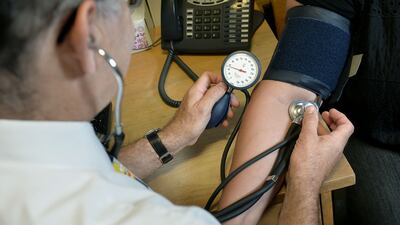All forms of activity, even minimal, can benefit heart health more than remaining sedentary, research suggests.
Findings from a new study show that substituting small periods of exercise for sitting can lead to significant cardiovascular benefits, highlighting the dangers of a sedentary lifestyle and the advantages of modest physical activity.
Supported by the British Heart Foundation and published in the European Heart Journal, the study evaluated the effects of various activities on heart health.
It involved more than 15,000 participants from five different countries who wore activity-tracking devices.
The evidence suggests that engaging in moderate to vigorous physical activity for just four to 12 minutes daily can improve cholesterol levels, help maintain a healthy weight and decrease waist size.
“The big takeaway from our research is that while small changes to how you move can have a positive effect on heart health, intensity of movement matters,” said Jo Blodgett from University College London, who led the study.
“It was notable that heart health benefits are likely to be observed after replacing just a few minutes of sedentary or sitting time with moderate to vigorous activity,” Dr Blodgett told The National.
“However, to achieve comparable benefits with standing or light activity, it could require one to three hours of replacement depending on the outcome.”
Dr Blodgett advocates activities that increase the heart rate, such as a brisk walk or stair climbing, even if only for a short duration.
The research indicated that replacing six minutes of sitting with exercise can lead to better cholesterol levels, while substituting 30 minutes can notably reduce body weight.
For instance, a 54-year-old woman with an average body mass index could see a 2.5cm reduction in waist circumference by replacing 30 minutes of sitting with moderate to vigorous exercise each day.
“All data was measured at a single time-point in all six studies (ie cross-sectional), and we modelled how changing one behaviour with another – while keeping the others constant – would impact outcomes,” Dr Blodgett said.
The study presented a hierarchy of beneficial activities for heart health: moderate to vigorous exercise was most effective, followed by light exercise, standing and sleeping.
Even simple changes, like using a standing desk or walking during phone calls, could make a difference.
“This research shows that small adjustments to your daily routine could lower your chances of having a heart attack or stroke,” said James Leiper, associate medical director at the BHF.
He suggests incorporating “activity snacks” into the day – short, easy-to-manage bursts of movement – to establish a habit of an active lifestyle.









